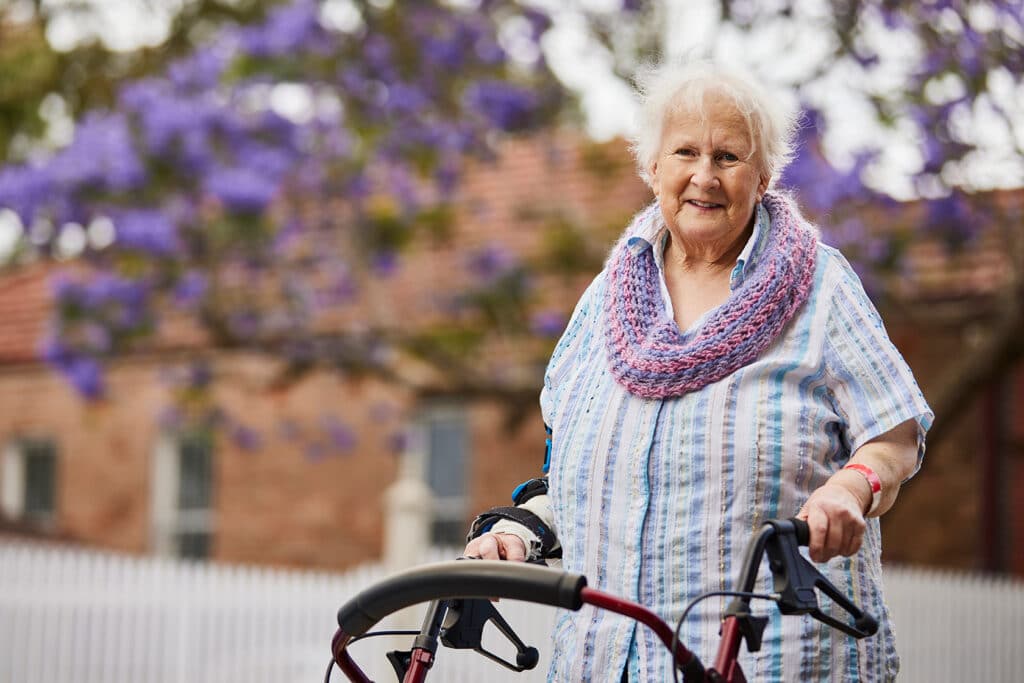Recovering from a serious injury, illness, or surgical procedure is often a long and difficult process, and, in many cases, result in extensive bed rest and an overall reduction in physical activity. This inactivity can lead to a decline in function or deconditioning of the body.
The impact of deconditioning
Deconditioning refers to the changes in the body that can occur during a period of inactivity. The changes happen in the heart, lungs, and muscles resulting in:
Depending on the severity of deconditioning, these effects can interfere with everyday activities, such as walking, leaving the house, or running errands. In more extreme cases, they can make it challenging to do basic self-care such as getting to the bathroom, showering, or getting dressed.
Fortunately, reconditioning rehabilitation can help minimise or even reverse these effects, allowing you to return to a level of fitness and function closer to that which you previously enjoyed by:
An expert multidisciplinary team, skilled in neurological, orthopaedic and musculoskeletal conditions.
A program that is tailored to your unique needs and goals.
A genuine partnership between you and your clinical team so you have choice and control.
A warm and friendly environment where you feel safe and cared for.
Access to your rehab as an inpatient or through day services.
Under the direction of a specialist rehabilitation doctor, your program can include:
The diagnosis, assessment, & management of people with a disability due to illness or injury.
Focuses on exercises and mobility practice to improve strength and function.
Aims to help you maximise functional independence in everyday tasks.
An allied health discipline based on the benefits of physical exercise to help restore strength & function.
Exercises in warm water help relieve pain, strengthen muscles, increase circulation & improve function.
Aims at improving communication skills & enhancing the ability to swallow & drink.
Helps improve digestion & manage nutritional intake.
Assists with thoughts, brain function, behaviours, emotions, personality & human development.
Assessing & managing health issues, & providing therapeutic interventions & advice.
Focuses on enhancing overall health & wellbeing by providing effective & evidence-based support.
Supports to manage physical & mental health, improve speech skills, memory & coordination.

"2012 was the first time I came here. The nurses even remembered me when I came back. I keep coming back because they’re good."

"I just wanted to be as well as I could for as long as I could. I wanted to get my real life back."
There are several funding options available to access our programs. These include:
Fees and charges are dependent upon your health fund and level of cover. Please check with your health fund if any additional charges apply.
Before you are admitted or before commencing your program, we will obtain approval from your insurer.
A broad range of health care and support services are available to meet the clinical needs of eligible veterans and eligible dependants.
If you do not have a funding stream, you can also choose to self-fund your program.
As a fully accredited NDIS provider, our NDIS Therapy Supports service provides NDIS participants with evidence-based allied health therapies to support, maintain and increase function and wellbeing. Click to find out more.
The first step is to obtain a referral from your specialist or GP. Medical professionals can access referral forms by clicking here.
Once we receive your referral, we will be in touch to organise a time to meet with you to discuss and review your needs and goals. We will also provide a fee estimate.
We will be in touch to organise your therapy so you can begin your rehab journey.
Click here for our Privacy Policy.
"*" indicates required fields